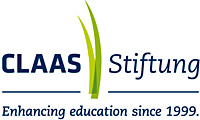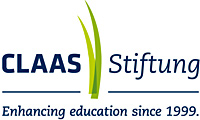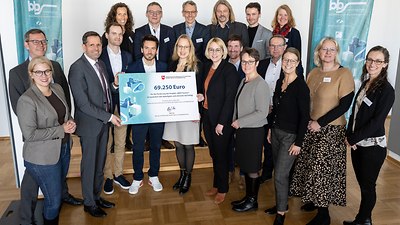Lower Saxony's Minister of Economics Olaf Lies has now handed over a grant for almost 70,000 euros. Further subsidies come from the district and city of Osnabrück as well as from regional foundations. Councilor Anna Kebeschull and Lord Mayor Katharina Pötter as well as Sabine Stöhr from the MINT working group of the foundation network for the Osnabrück region attended the opening of the MINT Factory.
Recent studies show that the need for action is great. There is a growing shortage of specialists in the MINT professions (mathematics, computer science, natural sciences and technology) as well as a lack of education in schools. To meet these challenges, a promising initiative has been launched in the Osnabrück region. The focus is on the introduction of learning factories at general schools, also known as MINT:Factories. These consist of 3D printers and electronic components to produce teaching materials that can be used in the classroom. The MINT:Factory can be used in various teaching fields, but the focus is initially on the Computer Science department, which will be introduced as a compulsory subject at all schools in Lower Saxony from summer 2023.
"We must design the training of MINT specialists so that they can apply their knowledge in practice and that the framework conditions are improved in such a way that the specialists in Lower Saxony feel comfortable and stay with us," Minister Lies said during the opening. "With the support of the interschool project MINT-Factory in the Osnabrück region, we are setting our sights right on this point and are supporting the development and application of digital skills in everyday school life with the development of learning factories - and are also ensuring a closer connection with the economy. The project is a successful example of how twelve schools, city and country work together hand in hand." Councilor Anna Kebschull is also pleased about the establishment of the MINT Factory. Investments such as these are necessary to ensure that the Osnabrück region remains a strong economic location. The initiative offers further perspectives: "After a successful test phase, we would like to extend the project to further schools in the Osnabrück region. The more children and young people come into contact with modern technology at an early stage and work with it, the more we arouse enthusiasm for the STEM subjects." Katharina Pötter also shares this view: "For the future of Germany as a location for innovation, we must promote the STEM potentials of young people even better. Therefore, I am very pleased that we are implementing the STEM Factory project together and have created a great, practical offer for the students with mobile robots, among other things," said the Lord Mayor.
The driving forces behind the MINT:Factory are the two vocational school teachers Kai Krafft and Hanno Rhauderwiek from BBS Brinkstraße. "My two colleagues have shown a tremendous commitment here, which impressed me very much," says Martin Henke, head of the BBS Brinkstraße school, adding: "The project also supports an important goal. It will bring about closer networking between general schools, our vocational schools and businesses in the region. In this way, synergies for MINT education will be created, which will have a very positive and lasting impact on the educational landscape. It is also gratifying that the project will be made possible by the Ministry of Economy, the City and the Osnabrück County as well as by foundations." The funding by the Ministry of Economy together with financial resources from the City and the Osnabrück County will make it possible to equip twelve schools with STEM:Factories in a first test phase starting in winter 2022 (Ernst-Moritz-Arndt-Gymnasium, Gymnasium Melle, Gymnasium Oesede, Bertha-von-Suttner-Oberschule Osnabrück, Oberschule am Sonnenhügel, Oberschule am Sonnensee, Oberschule Bohme, Oberschule Ludwig-Windthorst-Schule, Realschule Bad Iburg, Realschule Georgsmarienhütte, Thomas-Morus-Schule and Gesamtschule Schinkel). In addition, the project is supported by many regional foundations and business enterprises. "It is important for the foundations in the region that young people can discover what digitalization means in a very practical way when introducing the subject of computer science. The project makes current technologies tangible and is therefore also a valuable building block for professional orientation," emphasizes Sabine Stöhr from the MINT working group of the foundation network for the Osnabrück region.
Another partner is the Osnabrück University of Applied Sciences. Together with her and business partners, for example, a robot is being developed that can be produced in schools using 3D printers and makes computer science lessons more interactive for children and young people. This example can be used to illustrate practical everyday situations as well as topics such as autonomous driving and the application of artificial intelligence in the classroom. In this way, students gain practical experience and deepen their knowledge and skills in the fields of technology and programming at school - and even more extensively through cooperation with participating companies.


